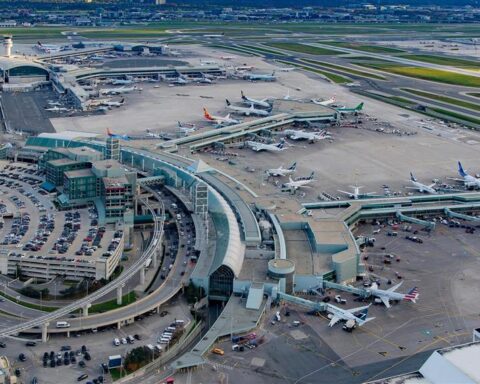How immigrants in Canada fare compared to a fairly representative sample of world nations, a report on global perceptions of corruption and a rather candid conversation about “ethnic” politics in Ontario make the cut for our scan of headlines this week.
An estimated 214 million people live in nations outside of their country of birth. These international migrants would be the fifth largest nation by population if everybody like me decided to live within the same borders, with International Organization for Migration figures suggesting that one in 33 people are migrants. But, as we know only too well in Canada, immigrant-receiving nations are becoming increasingly careful about who gets in and what they need to do to become desirable candidates. The world is looking for “makers” – not “takers” – who free load the healthcare and social safety net systems.
It is not surprising that Canada fared rather well in the OECD’s (Organization for Economic Cooperation and Development) first scan of its 34-member nations on how immigrants are doing. The study highlighted two major trends:
That most nations are trying to attract highly-skilled newcomers, but that the job prospects for new citizens have not keep pace with this influx (for e.g., the percentage of the highly qualified among immigrants to Canada grew by 9.5 per cent between 2000 and 2010, while the proportion among native Canadians grew by only 6.1 per cent.)
That the age of children migrating is a good predictor of how they will do in school: teenage immigrant children don’t do too well, while those under six years of age do better, i.e., the younger you are, the better.
Canada had better scores than the OECD average in each of the following criteria: housing, health, native-born offspring of immigrants’ education and civic engagement (as measured through naturalization), but did poorly in the areas of income distribution and labour market outcomes (skills matching).
Here’s the kicker –
- The immigrant household median income is 21% lower than native-born families.
- And, 23% of persons living in an immigrant household live with income below the poverty line.
- On skills matching, we do considerably worse than the OECD average.
None of this a real surprise and presumably the basis for Ottawa’s policy reforms that privilege those who already have a job offer in Canada and those who have studied at Canadian academic institutions. Only time will tell whether these changes will result in better employment for immigrants.
Unemployment is one nightmare in the immigrant experience. The other is corruption in the new nation. Many immigrants are fleeing corrupt regimes and systems that run on bribes greasing the system. From that perspective, Canada is a safe haven. It’s definitely in the top tier, ranking number 9 in the world with a rating of 84 (100 being the cleanest), according to Transparency International’s 2012 Corruption Perceptions Index. We do better than the U.S., which is ranked number 19 and has a score of only 73. Let’s give ourselves a pat on our collective backs.
Of course, episodes like the “sponsorship scandal” and the ongoing inquiry in Quebec looking into the awarding of public contracts must sully our reputation. From a newcomer’s perspective, it is heartening to see a heightened sensitivity to even remote hints of corruption, like the humiliation of Toronto Mayor Rob Ford over a relatively minor dollar amount and where it is clear he did not benefit in any way. As in the sponsorship scandal, we can end up spending more money in getting at the truth than the original act of corruption, and we can also get obsessive-compulsive around perceptions of influence-peddling. Yet, it is important that we not allow corruption to corrode our system of governance.
Rounding off our global scan is Tarek Fatah’s hard-hitting opinion in the Toronto Sun headlined “Liberal White Prejudice”. I’ll quote just one section to show how Tarek takes on sacred cows like no other writer in Canada: “This was rich coming from a columnist whose newspaper claims to be liberal, but has made an industry out of promoting the most orthodox and conservative stereotypical images of various ethnic communities.”
He was referring to a column written by Toronto Star columnist Martin Regg Cohn accusing Harinder Thakar, a former Ontario cabinet minister, of “playing the ethnic politics card” for strutting his South Asian roots and practising “old style politics”. Tarek hauled Cohn over the coals the way only he can: “Had Cohn done his homework, he would’ve discovered Takhar is hardly the ethnocentric fella he has made him out to be. Takhar, a Sikh Indo-Canadian, has a Muslim Pakistani-Canadian chief of staff. That’s equivalent to a Jewish- Canadian hiring a Palestinian-Canadian as his confidante.”
That kind of plainspeaking is refreshing and should caution other commentators like Cohn who jump to ethnicity-based conclusions rather easily. How often have we heard of the “ethnic vote” during elections, like immigrants were cattle being herded to the polling booths?
Time to put that rather derisive term to rest.




